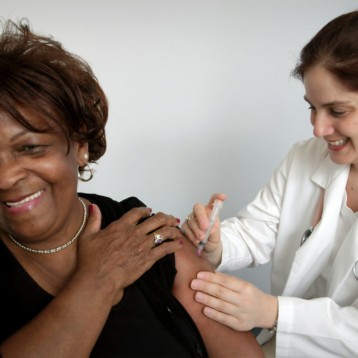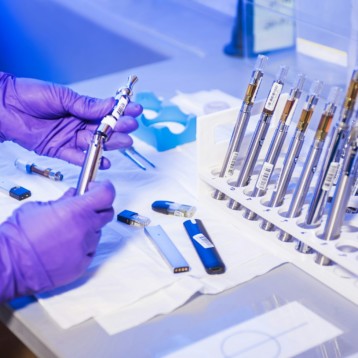Medical devices such as hip and knee implants or pacemakers have the capability to greatly improve the quality of life for patients who rely on them. However, when these types of medical devices are defective and fail to provide their intended benefits, they can result in serious injuries and health complications.
Common Types of Medical Device Defects
Defective medical devices can cause serious injuries and can be life-threatening. There are various types of medical device defects which include:
- Design Defects: A design defect occurs when the medical device is inherently flawed due to its design. Any device manufactured according to that design is potentially dangerous and has a risk of injuring any patient that uses it. Even if the device is manufactured properly, it may still cause harm to patients due to its flawed design.
- Manufacturing Defects: A manufacturing defect occurs during the manufacturing process and impacts only a specific batch or group of devices produced together. A medical device may be designed properly, but if it is not manufactured correctly, it can be defective. These defects can occur due to errors in the manufacturing process or the use of substandard materials.
- Marketing Defects: A marketing defect of a medical device can occur when a manufacturer fails to provide adequate warnings, instructions for use, or other necessary information about the device. Injuries can be caused by the incorrect use of a medical device if warnings are not clearly marked. Marketing defects can include incorrect or incomplete labeling, insufficient testing, or misrepresentation of the device’s capabilities.
These main types of defects have been commonly seen in product recalls of defective medical devices. It’s important to note that these defects can occur individually or in combination with one another. The severity of the defect can vary from minor to life-threatening depending on the type of medical device. A design defect on a pacemaker, for example, can have serious life-threatening risks if the implanted medical device malfunctions.
What To Do If You Have Been Injured by a Defective Medical Device
If you have suffered an injury caused by a defective medical device, there are several important steps to take to protect your health and your legal rights.
- Seek Medical Attention: As a victim of a defective medical device, the first and most important step is to seek medical attention immediately. Even if your injuries seem minor, it’s important to get seen by a medical professional to ensure that there are no underlying issues that could worsen over time or be a risk for serious health complications.
- Keep Records: Keep detailed records of all medical treatment related to your injury that you received. This includes medical bills, hospital records, doctor’s notes, prescriptions, and any other relevant documentation.
- Contact a Defective Products Lawyer: Contact a lawyer experienced in defective medical device claims who can help you understand your legal options and guide you through the claims process.
- Collect Evidence: Your attorney will investigate the claim to gather evidence, including medical records, product information, and other relevant documentation. Evidence to support your claim can include photos of your injuries, the medical device itself, and any other information that can help demonstrate the product defect.
- File a Claim: Your attorney can help file a complaint with the medical device manufacturer on your behalf, outlining the details of the claim and the damages you are seeking. Having a legal team on your side can help you understand the relevant deadlines and requirements for filing a claim.
While every case is different and has specific elements unique to the patient, these steps provide a general outline for what to do if you have been an injury victim of a defective medical product. By following these general guidelines and working with an experienced attorney, you can increase your chances of securing maximum compensation deserved for your injuries.
Damages Available For a Defective Medical Device Claim
If you have been injured by a defective medical device, you may be entitled to both economic and non-economic damages. Some of the common damages available as an injured victim of a defective medical device can include:
- Medical Expenses: You may be able to recover the costs of medical treatment related to your injury, including hospital bills, doctor’s visits, and medications.
- Lost Wages: If you had to take time off work due to your injury, you may be able to recover lost wages and other related expenses.
- Pain and Suffering: You may be entitled to non-economic damages for physical pain, emotional distress, and suffering caused by your injury.
- Disability and Disfigurement: If your injury resulted in a permanent disability or disfigurement, you may be eligible for compensation for the impact on your quality of life.
Benefits of Working With a Defective Products Lawyer
Working with a lawyer skilled in defective product claims can be extremely beneficial when filing a defective medical device claim. Defective medical device cases can be complex, involving both medical and legal issues. Having an experienced lawyer on your side can provide legal expertise and knowledge to handle your case efficiently and effectively.
A lawyer can conduct a thorough investigation into the defective medical device and its manufacturer, gathering evidence to support your claim. A lawyer also has the skills to negotiate with the manufacturer and their insurance company on your behalf to secure a fair settlement. Getting legal support from a law firm which has experience handling defective medical device claims will have access to medical experts who can review your case and provide expert testimony in court. Ultimately, a lawyer can help you maximize the compensation you receive for your injuries.










